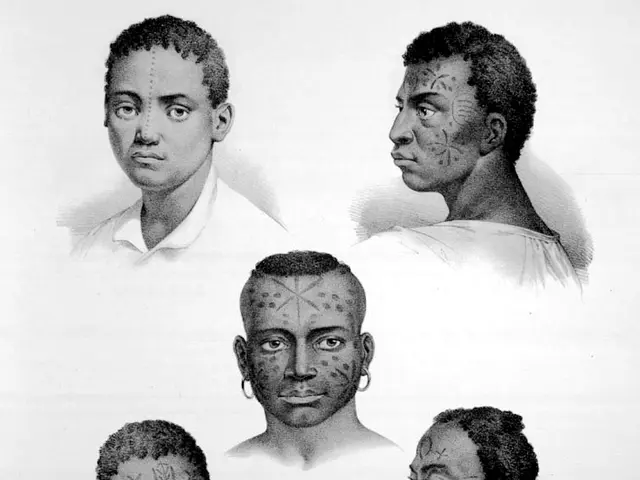Steps for Confidential Travels: Essential Privacy Measures to Observe
Anonymous Travel: Navigating the Digital Landscape with Privacy in Mind
As governments crack down on cash transactions and travelers seek more privacy, the adoption of cryptocurrency and blockchain-based payment methods is set to accelerate. Meanwhile, privacy-focused guesthouses are becoming a haven for those seeking to escape the digital world.
These boutique hotels and small guesthouses, often shunning major booking platforms and requiring minimal identification, offer a unique opportunity for anonymous travel. Staff training on privacy protocols ensures employees understand the importance of discretion, creating an environment where guests can truly disappear from the digital world.
However, it's crucial to research your destination's data protection regulations before you travel. Some nations mandate that hotels report guest information to authorities within hours of check-in, while others may collect biometric data at borders, hotels, or tourist attractions. Investigating local surveillance practices, such as the use of facial recognition systems or internet traffic monitoring, is also essential.
To travel anonymously, a layered approach is key. Using a privacy-focused VPN with a strict no-logs policy, like Mullvad or ProtonVPN, is the first step. Connecting to your VPN first, then launching the Tor browser, adds layers of anonymity by hiding your real IP address from both Tor entry nodes and websites.
Cash-purchased prepaid SIM cards or payment cards should be used to avoid using personally linked bank accounts or credit cards. These cards can be bought in person with cash from retail stores without registration to keep your travel and communication untraceable.
End-to-end encrypted messaging apps, like Signal or Session, installed on devices with minimal personal data linked, are also essential for anonymous communication. Avoid linking phone numbers or email addresses tied to your identity when creating accounts.
Clearing cookies and browsing history regularly, using incognito/private modes, and testing your setup by verifying that your IP address and location are masked on privacy check websites are additional practices to maintain anonymity.
It's important to note that Tor alone does not guarantee full anonymity; combining it with a VPN improves privacy by hiding your IP from Tor entry nodes. Using cash or prepaid cards disconnects your payments from your real identity, enhancing plausible deniability. VPNs like Mullvad allow anonymous sign-ups and do not require emails, supporting more anonymous setups.
Smart travelers will need to adapt by choosing smaller regional airports, using ground transportation across borders, or investing in cosmetic alterations that fool recognition systems. As legal anonymity in travel increases by 2025, creating new opportunities for privacy-focused travelers, the need for such measures will only grow.
Private aviation is also expanding for more privacy, offering wealthy geeks exclusive routes that bypass traditional airport screening. However, surveillance technology presents the biggest challenge to anonymous movement, with 93% of global commercial airports using biometric surveillance.
In conclusion, by adopting these practices and being mindful of local regulations, travelers can maintain their anonymity and privacy while navigating the digital landscape.
- In order to maintain anonymity during travel, it's essential to use cash-purchased prepaid SIM cards or payment cards, as these can help avoid using personally linked bank accounts or credit cards that may reveal one's identity.
- As travelers seek to escape the digital world, boutique hotels and small privacy-focused guesthouses that offer blockchain-based payment methods and reply on minimal identification could be an ideal lifestyle choice for those wanting to limit their technology and travel footprint, thereby ensuring privacy during their stay.






